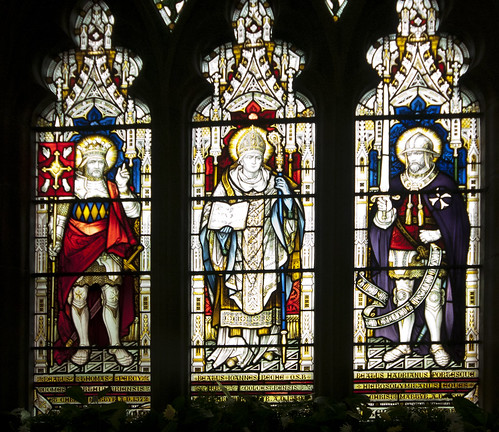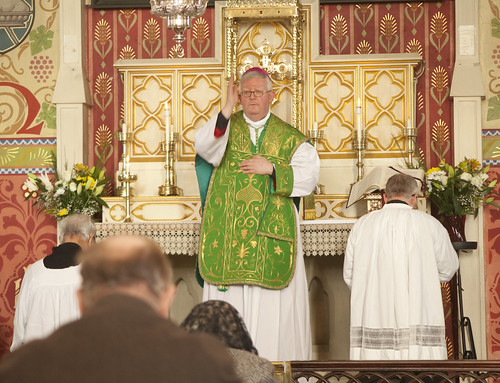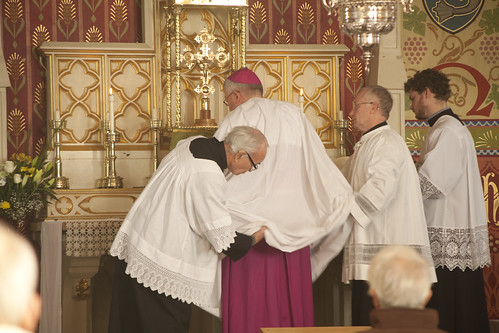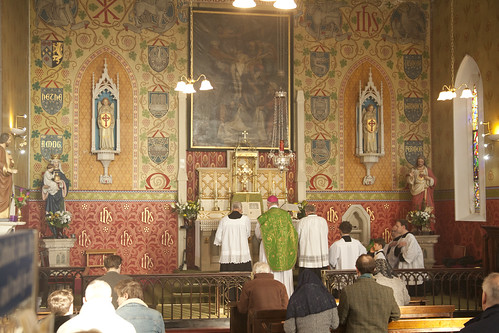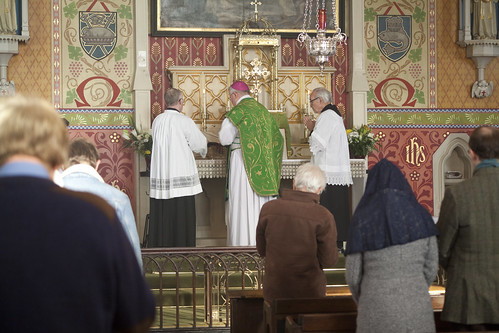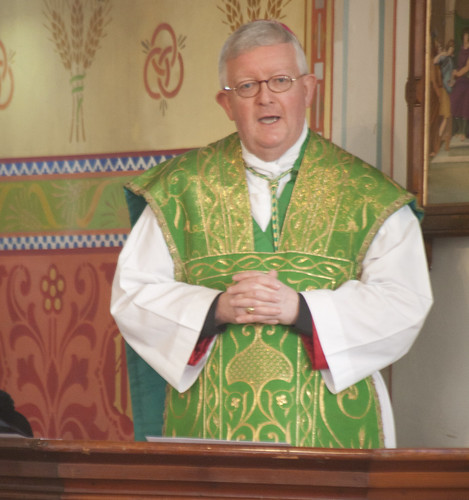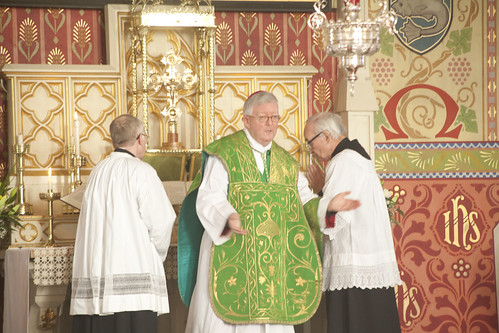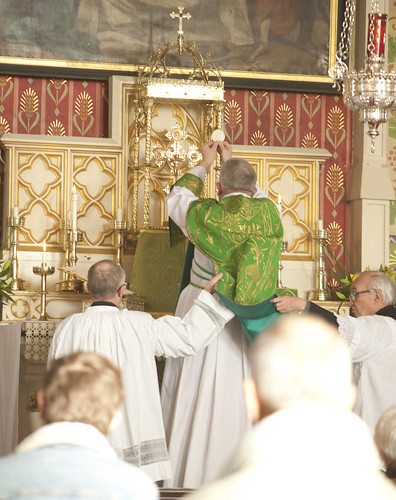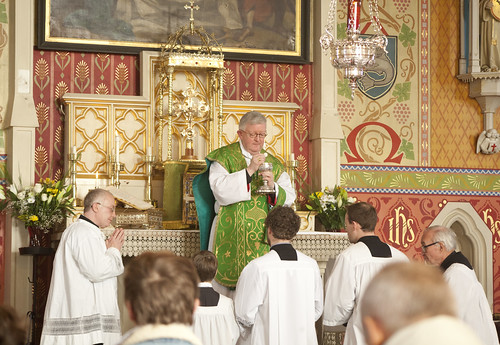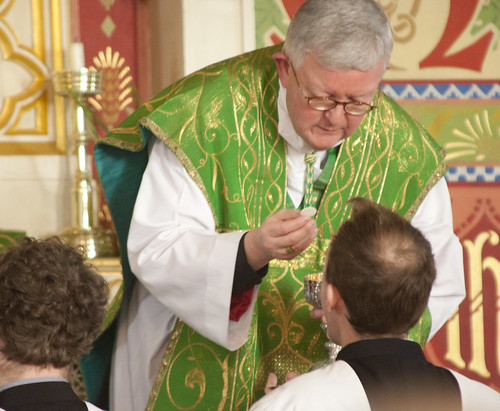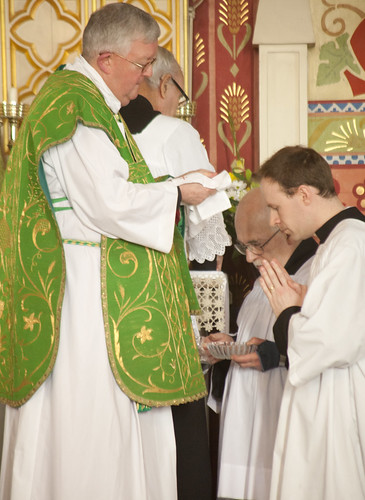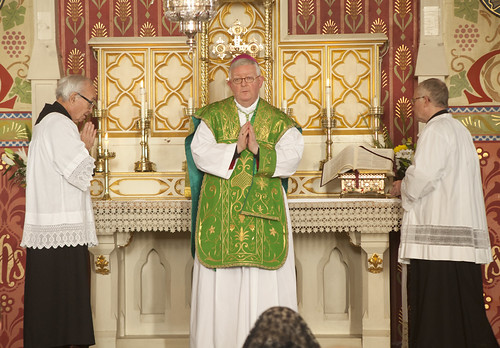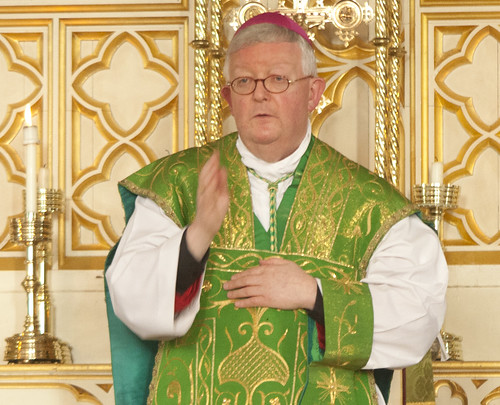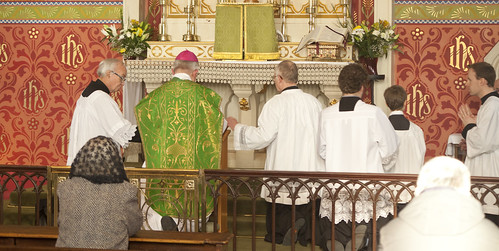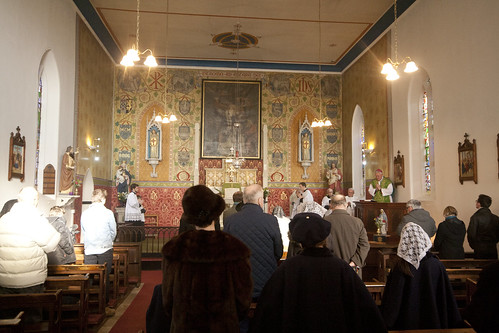Chairman's Blog
Mass in Milton Manor Sat 11th Feb
Support the work of the LMS by becoming an 'Anniversary Supporter'.
What, then, should we do? Part 3: what it means for you.
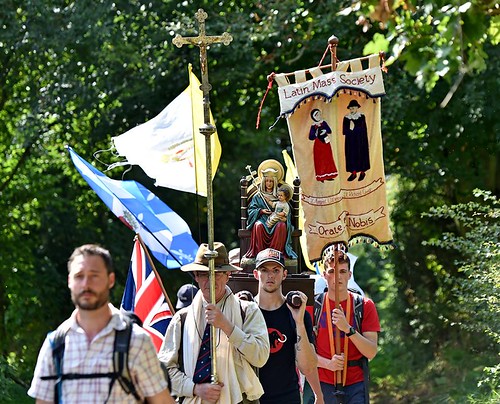 |
| Latin Mass Society Waling Pilgrimage to Walsingham. |
In the last two posts I have given a number of reasons why the defence of the Faith and those upholding it will best be done through the movement for the restoration of the Traditional Mass. This post is about what that means in practice for you, dear reader.
4. The movement’s historical experience has effectively innoculated it against Papolatry.
Support the work of the LMS by becoming an 'Anniversary Supporter'.
What, then, should we do? Part 2: why the Traditional Mass
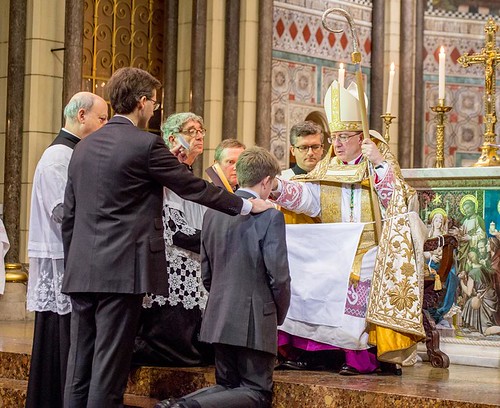 |
| A young man being made a soldier of Christ, at the Traditional Confirmation ceremony organised by the Latin Mass Society in London. |
The first post in this series is here.
The Church is enriched by all sorts of organisations and movements, many of them doing good work. I have just argued that in response to the current crisis Catholics of good will should rally to the banner of the Traditional Mass, and the movement which supports it. Why? What is wrong with all the other organisations and movements in the Church, and indeed one’s own geographical parish?
Support the work of the LMS by becoming an 'Anniversary Supporter'.
What, then, should we do? Part 1: what is required.
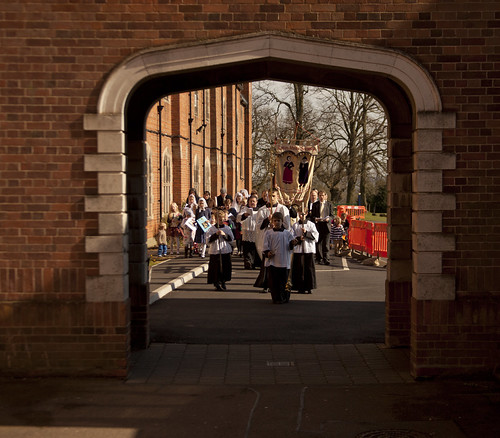 |
| They are coming... A procession at the St Catherine's Trust Family Retreat. |
People keep asking this question; it is a fair question, and I want to try my hand at answering it. This is the first of a series of three posts on the subject.
The question refers to the current crisis in the Church. This may dissipate tomorrow by some intervention of Providence, but we must be prepared for the crisis to develop further according to its own logic. On this logic, we can expect priests and laity to come under increasing pressure to deny and to act contrary to the immemorial and irreformable teaching of the Church, the explicit teaching of Christ in the Gospels and of St Paul in the Epistles, about divorce and the sacraments.
To clarify what may seem puzzling, a mass movement to preserve orthodoxy cannot simply promote orthodoxy. Such a purpose would be too thin to bind it together. It would work for an elite group whose members can maintain personal relationships with each other. It would work for a formal organisation, which tied people together with a stable leadership, membership fees, newsletters, and regular events. It won't work for a movement which is diffuse, i.e. not centralised, and has a mass, not elite, membership. In a very vague sense there is already a 'movement to preserve orthodoxy' in the Church, but it is not remotely dense enough to provide systematic support for priests and laity who need it, and is riven with disagreement about what orthodoxy entails. What is needed for this particular job is a movement based around something which gives the notion of orthodoxy some more definite content, and at the same time gives its members something distinctive (distinctive from the heterodox, that is), in common. Something which can act as the movement's banner, or uniform.
The death of law in the Church
 |
| A general of the Vendee uprising against the French Revolution |
On October 9, 1965, 450 conservative participants in the Second Vatican Council submitted written interventions for discussion, demanding the condemnation of Communism. Under the rules governing the Council, the interventions should have been debated, but they were not. At first, the excuse was made that they had not been submitted within the deadline. Then, when this proved to be untrue, Archbishop Garrone of Toulouse explained, on behalf of the Council's secretariat, that the interventions 'were not examined when they should have been, because unintentionally they had not been transmitted to the Commission members.' By then it was too late to do anything about it. So that's all right, then. (I take this summary of events from Michael Davies, Pope John's Council pp150-1.)
The recent events surrounding the Order of Malta have raised the question of the role of law in the Church, as, on the face of it, the admittedly unique and peculiar legal rights of the Order would seem to have been trampled underfoot. The problem of respect for law and legal procedure goes back further, however, as this anecdote from 1965 illustrates. Accounts of the Second Vatican Council are replete with stories of procedural shenanigans; this one was perhaps the most shameless. In the 1980s and 1990s some degree of stability was restored to the life of the Curia, perhaps, but around the world the Church's law had for many purposes simply died. Liturgical law, laws governing the training of seminarians, laws governing clerical discipline and the procedures for dealing with breaches of those laws, were only referred to, in many parts of the Church, in a purely opportunistic way to punish priests, nearly always the more conservative ones, who had annoyed their bishops or religious superiors.
Anyone during this period pointing out to priests and bishops the many laws of the Church -- whether of the General Instruction of the Roman Missal, or of the Code of Canon Law -- which they routinely broke or ignored, was met with, at best, derision, and, at worst, anger and retribution. Inevitably this attitude to law carried over to issues of serious clerical wrongdoing, and also infected clerical attitudes to the law of the land, and lies behind the Church's response to clerical sex abuse cases.
The situation of lawlessness has been such that it is actually impossible for a conscientious priest or Catholic layman to keep the law even for himself. Priests who went through the liturgical rules laid out in the 2004 Instruction Redemptionis Sacramentum and actually applied them in their parishes would be, in most dioceses, in deep trouble. Take the rule that Holy Communion should not be given in the hand if there was 'a risk of profanation' (section 92). Is there a priest in the developed world who would dare to apply this in the Ordinary Form?
I don't want to minimise the gravity of what is happening now, but to point out the well-laid foundations of it. Just as Traditional Catholics need to resist the temptation to think that everything before Vatican II was just fine, so conservative Catholics need to resist the temptation to think that everything before Amoris laetitia was other than catastrophically bad. Only from a catastrophically bad situation could the present hideous problems have arisen. Only after fifty years of the derision of law, and of the opportunistic, manipulative and oppressive use of law, could we have found ourselves reading about the de facto annexation of a sovereign entity by the Holy See, about priests found guilty of sexual crimes being let off if they have have friends in high places, and about a priest being suspended a divinis, by a formal decree of his bishop no less, for failing to get with the programme of Amoris laetitia: whatever that programme might be.
This last is perhaps worse than anything we have heard about in modern times: as appears from the bishop's own decree, this priest is quite literally being suspended for his adhearance to central tenets of the Catholic Faith. But it is not entirely without precedent. Remember this case? Most things like that happen more quietly.
It is no secret, of course, that theological liberalism does not have a high regard for law. Conservatives are at a disadvantage, then, in allowing themselves to be limited by the law, in dealing with liberals who do not. Liberals feel exactly the same sort of justification in breaking laws for what they see as the greater good, that Fascists and Communists did in the revolutions and conflicts of the 20th century. Their actions have the same effect, creating a situation in which only brute force can get things done, and where disciplined gangs of thugs are best positioned to weild that brute force. What conservatives want is freedom under the law: a situation in which a stable and just (if imperfect) framework of rules prevents the systematic abuse of power. That isn't the situation in the Church today, and it hasn't been for a long time.
At a certain point the remaining moral authority of deference, procedure, precedent, and rule will disappear for conservatives as it has long since disappeared for liberals. This is the moment of counter revolution: perhaps this is the moment that President Trump represents in American politics. It is dangerous because counter-revolutionaries do not always distinguish between the human laws which no longer command authority, and the Natural and Divine Laws which can never lose it. It is a phase of history for which we may need to be prepared in the Church.
Support the work of the LMS by becoming an 'Anniversary Supporter'.
Archbishop Longley in Holy Trinity, Hethe: photos
Archbishop Bernard Longley of Birmingham paid a pastoral visit to the parish of Holy Trinity, Hethe, last weekend, and celebrated Pontifical Low Mass on Sunday at noon. It was accompanied with motets sung by the Victoria Consort under Thomas Neal. The Archbishop was assisted by the Parish Priest, Fr Paul Lester, and Deacon Keith Crocker.
Support the work of the LMS by becoming an 'Anniversary Supporter'.
Diocese of Rockford: no Summorum Pontificum here
Bishop Malloy of Rockford in the USA has told his priests that, whatever Summorum Pontificum may say, they need his permission to celebrate the Traditional Mass.
Though this puts traditionally-minded priests at an advantage to those seeking to implement the Reform of the Reform: in the same letter, Bishop Malloy informs that celebration versus populum is forbidden.
Does the Pope's writ run to Illinois? The mind boggles.
I've blogged about this over on Rorate Caeli, where the letter can be seen in full.
Support the work of the LMS by becoming an 'Anniversary Supporter'.
Archbishop Longely is coming to Holy Trinity Hethe on Sunday
Support the work of the LMS by becoming an 'Anniversary Supporter'.
Vatican II on liturgical preservation
Reposted from Feb 2014. The 'good bits' (from a conservative point of view) in Vatican II on the liturgy were completely without force during the reform which followed it. As Michael Davies wrote somewhre, the only passages in official documents which are of any real importance are those which allow what was previously forbidden, or forbid what was previously allowed. That's a lesson a lot of conservatives have been slow to learn.
 |
| Tenebrae: Solemn Offices of Holy Week, abolished in the Ordinary Form after Vatican II |
This is what the Second Vatican Council said about the Seasons of the liturgical calendar. (Sacrosantum Concilium 170)
Isn't this word 'preserve' interesting? Talking of rites in general, Sacrosanctum Concilium declares (para 4)
Lastly, in faithful obedience to tradition, the sacred Council declares that holy Mother Church holds all lawfully acknowledged rites to be of equal right and dignity; that she wishes to preserve them in the future and to foster them in every way.
Following the Council, the Dominican Order effectively forbade the Domincan Rite, a situation which only changed with Summorum Pontificum in 2007. Forbidding something, however, is not a way of preserving and fostering.
 |
| The Dominican Rite: effectively suppressed after the Council |
Of course the Council did mandate a liturgical reform. It says (50)
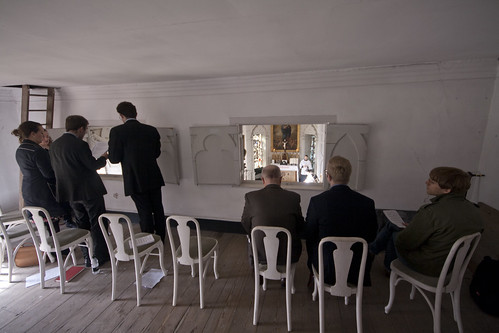 |
| Chant and Polyphony: for practical purposes they ceased to exist in the Ordinary Form |
How about sacred art? Para 123:
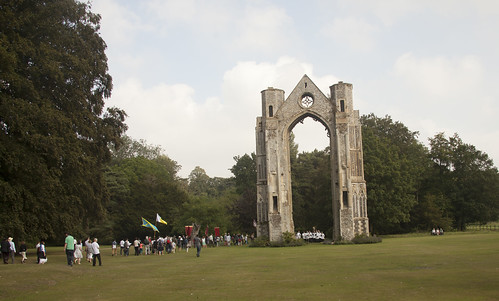 |
| Ruins of the Priory at Walsingham, visited by LMS pilgrims. From the point of view of 'preserving' sacred art, many Catholic churches haven't done much better since the Council. |
Malta sinks
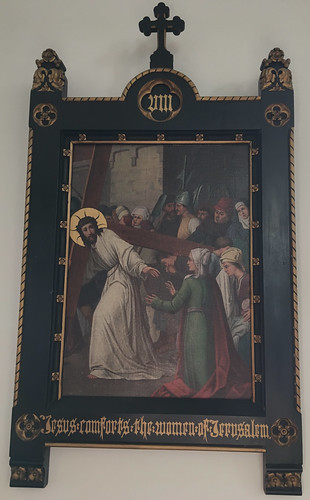 |
| 'Weep not for me, but for yourselves and for your children.' |
In World War II, Malta was described as the 'unsinkable aircraft carrier'. Well, it has sunk now. The Bishops of Malta (both of them) have stated that anyone in an irregular union who feels 'at peace with God' should not be excluded from Holy Communion or from Sacramental Absolution: at least, that's what they seem to say. Readers can judge for themselves.
If, as a result of the process of discernment, undertaken with “humility, discretion and love for the Church and her teaching, in a sincere search for God’s will and a desire to make a more perfect response to it” (AL 300), a separated or divorced person who is living in a new relationship manages, with an informed and enlightened conscience, to acknowledge and believe that he or she are at peace with God, he or she cannot be precluded from participating in the sacraments of Reconciliation and the Eucharist (see AL, notes 336 and 351).
Again:
there are complex situations where the choice of living “as brothers and sisters” becomes humanly impossible and give rise to greater harm (see AL, note 329).
If such a scene appears implausible, then we must admit that what the bishops are saying is simply: give absolution and Holy Communion to anyone who asks. Will we have a new Rite of Confession which makes the Act of Contrition optional? Or maybe a new Act of Contrition that leaves out the Contrition? It might look like this:
'O my God, because thou art so good, I am not at all sorry that I have offended thee, and with the help of thy grace I will offend thee again and again.'
To which the priest will respond:
'Go in peace, even though God has not put away your sins.'
Because, remember, this is not about people ignorant of the law, or about people whose actions are no longer moral actions at all because of an intolerable pressure which has destroyed their agency - not at all! - these are well-informed Catholics capable of sincere 'discernment' who are in happy second civil marriages which are sustaining loving homes for the children of these unions.
The only thing worse than the content of this document is the fact that it was published in the Vatican's official newspaper, L' Osservatore Romano.
The people telling the Four Cardinals that their dubia have already been answered now have another document to point to. But of course this is not an act of the Papal Magisterium, and in any case what we need to hear is how we are supposed to square this with things like the Council of Trent's infallible teaching that it is not impossible to obey God's law when in a state of grace. Austen Ivereigh and the others need to tell us, and the wretched clergy of Malta, why respect for the Magisterium places an ambiguous footnote in an Apostolic Exhortation, as interpreted by a couple of bishops, over a solemn anathema of a General Council.
The Magisterium of nods and winks is becoming more emphatic, and the crisis deepens, with more and more bishops, priests, and laity being thrown into the position of either going with the flow and participating in sacrilege, or resisting and becoming the target of not only the heavies in Rome but many of their own colleagues, superiors, and inferiors.
 But to cheer us up, there is a very interesting and helpful interview with Cardinal Caffara to read, and canonist Edward Peters brilliantly summarises the fundamental confusions and incoherences of the Maltese statement. The Catholic Herald report on the Maltese document, by Dan Hitchens, says everything I would want it to say.
But to cheer us up, there is a very interesting and helpful interview with Cardinal Caffara to read, and canonist Edward Peters brilliantly summarises the fundamental confusions and incoherences of the Maltese statement. The Catholic Herald report on the Maltese document, by Dan Hitchens, says everything I would want it to say.
This crisis is truly separating the men from the boys in the Church. We can either side with Christ, and his difficult, demanding, but also beautiful words on marriage and divorce, or side with the Pharisees and their modern-day successors, who search out specious casuistical exceptions to the rule until the rule is no more: who nullify God's will by the traditions of men.
Once you start noticing how people sometimes accuse their opponents of the specific faults which they fear they have themselves, you start seeing it everywhere...
Support the work of the LMS by becoming an 'Anniversary Supporter'.


